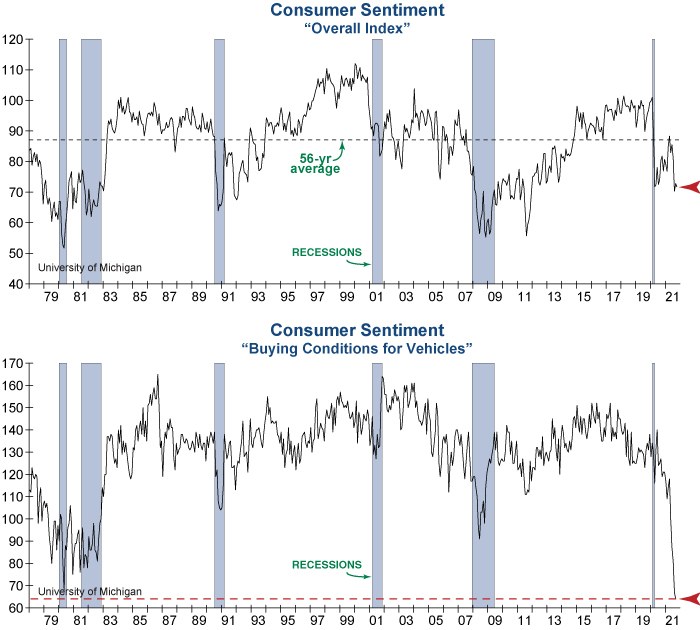The University of Michigan’s measure of Consumer Sentiment declined in October as inflationary fears pushed consumers’ attitudes back below pandemic levels of a year ago (top chart below). The bottom chart helps give some historical perspective on these concerns regarding inflation, as consumers view buying conditions for vehicles as the worst in the data set’s history – primarily influenced by a record share of consumers that see vehicle prices as being too high. This serves as a valuable example of how inflationary psychology can result in demand destruction, as falling vehicle purchases subtracted a whopping 2.4 percentage points from GDP growth in the third quarter. In other words, GDP growth excluding vehicle purchases would have been 4.4% versus the reported growth of 2.0%. Given that consumer spending accounts for two-thirds of the U.S. economy, Consumer Sentiment and the psychological impact of inflation on the consumers’ mindsets will be pivotal to the U.S. economy’s recovery going forward.

